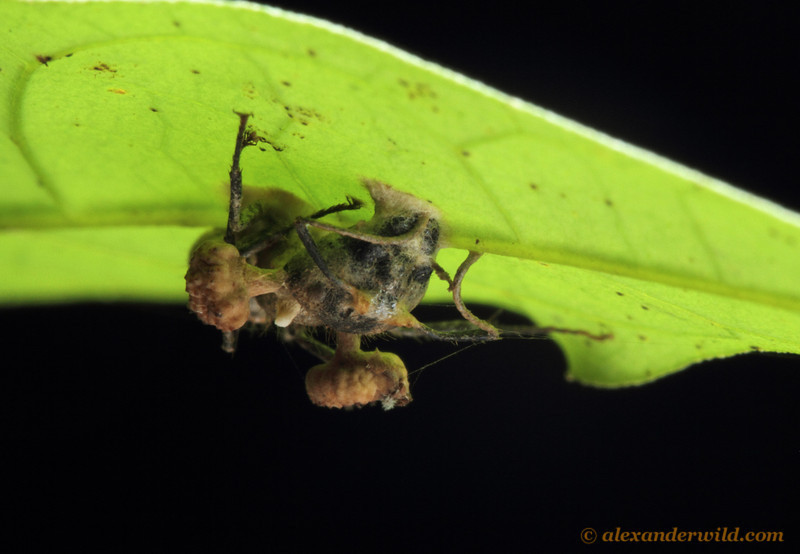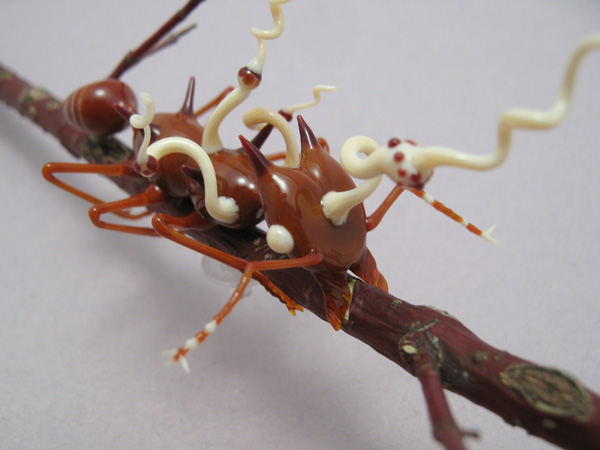The first time I ever saw a museum display about Cordyceps in the ’90s, I thought it was fake.
Of course it didn’t help that the display was housed in the delightfully obfuscate and factually semi-spurious Museum of Jurassic Technology down in Venice, California. I’d certainly never seen anything like it before, and thanks to many other displays of varying degrees of accuracy, I was mighty skeptical. Though the species listed (Cameroon Stink Ant?) and other information turned out to be bogus, the life cycle of the fungus was real.

Photo by Alexander Wild
Cordyceps is a type of fungus that infects the bodies of arthropods, the mycelium spreading through their tissue until it reaches the brain. Once there it starts to affect the behavior of the arthropod, causing it to seek a branch, leaf or twig and then hang on tight.
Having forced its host to a sufficient tall spot and clamp down, only then does the fungus burst forth from the corpse of the (now dead) arthropod, raining spores down, hopefully to land on other hapless insects and spiders, thus continuing the cycle. There are many species of fungus, each of them with a particular set of organisms that it infects.
Cordyceps are bizarre and obscure, but they’re clearly getting their day in the sun (which of course is all a Cordyceps could want, ha!) due to its ability to create mushroom-driven zombies. The creator of the video game The Last Of Us cited the BBC Planet Earth series as an inspiration for his mycological monsters.

Concept art from The Last Of Us
The human zombies are scary, but to me that’s nothing compared to the real thing.

Here’s a couple of illustrations from a Japanese mycological book Illustrated Vegetable Wasps and Plant Worms in Colour.


Of course not all attacks by Cordyceps have to be frightening. Here’s an advertisement spot for Rdio, showing a beetle under the influence of some powerful tunes. Or is it something else?
And with that, Cordyceps has proven that it can spread itself though the public consciousness, down to our very commercials. Using social media as a host carrier, it’ll keep spreading until we’re all infected with obscure invertebrate knowledge. Sounds great to me! ![]()



One Response to Fungus on my mind